Best of 2017: Dance | reviews, news & interviews
Best of 2017: Dance
Best of 2017: Dance
Classical ballet dominates the highlights reel as chosen by theartsdesk's critics
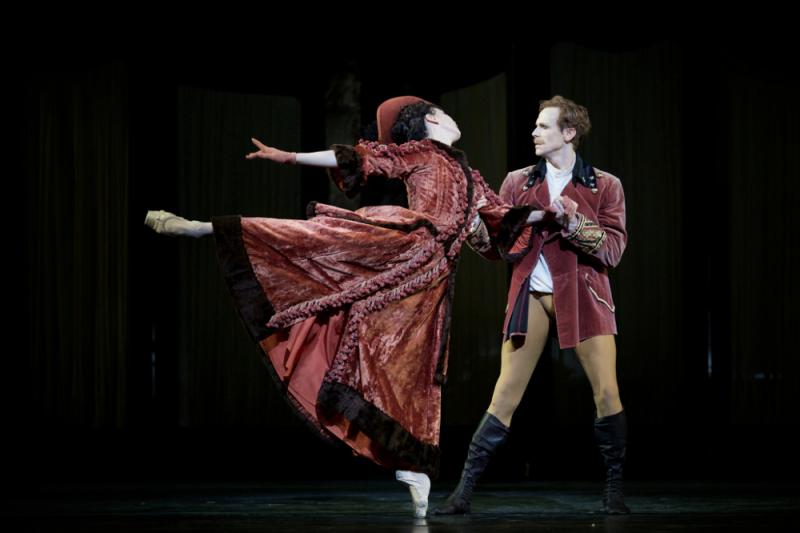
With forelock-tugging celebrations of a choreographer who died 25 years ago and a summer visit by the Mariinsky the highest-profile events in the calendar, 2017 may not be remembered as a vintage year for British dance.
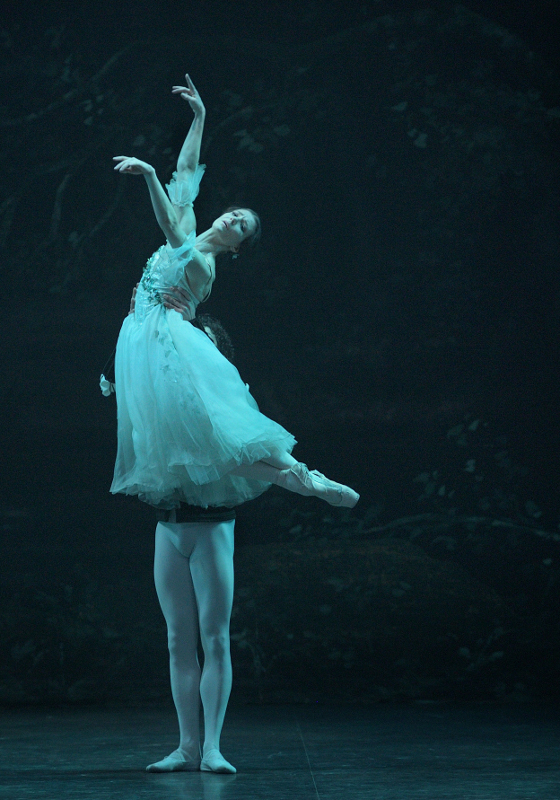 Two Giselles, English National Ballet
Two Giselles, English National Ballet
Akram Khan's remade Giselle, premiered in September 2016, made last year's best-of list and I make no apologies for including it again. Its first revival at Sadler's Wells in the autumn, with a handful of judicious improvements, proved its quality: narrative ballet in the 21st century has rarely been so spellbinding and so political. It's not perfect, and even to an extent divides opinion – some markedly prefer the spectral second act; another group, including this critic, find the second act turgid by comparison with the tight, driving first – but Khan, composer Vincenzo Lamagna, designer Tim Yip and English National Ballet have written themselves into dance history with a truly unforgettable piece.
Equally memorable was a performance in January of Mary Skeaping's classic production of Giselle with Alina Cojocaru in the lead (pictured above right by Laurent Liotardo). Dud Giselles are, thankfully, quite rare, so it's the small details – as well as a star ballerina – that distinguish the greatest performances from the rest. Lovingly coached in the Romantic style, ENB's corps were a fitting frame for Cojocaru's feverishly brilliant turn as the girl whose love survives death, and the intelligent narrative arrangement of Skeaping's first act made the story even more heartrending than usual. Hanna Weibye
Flight Pattern, Crystal Pite, Royal Ballet
An evening which to many stood out for the wrong reasons – wild outbursts from choreographer David Dawson and his team, posted as comments on theartsdesk's review, accused the Royal Ballet of unprofessionalism – also deserves a mention for the much-anticipated new work by Crystal Pite, hottest of contemporary choreographers, for a company whose commissions have been a bit lacklustre of late. Pite examined the refugee crisis with passion and compassion in a piece that was both beautiful and hard-hitting; Kristen McNally and Marcelino Sambé were magnetic as the leads. Hanna Weibye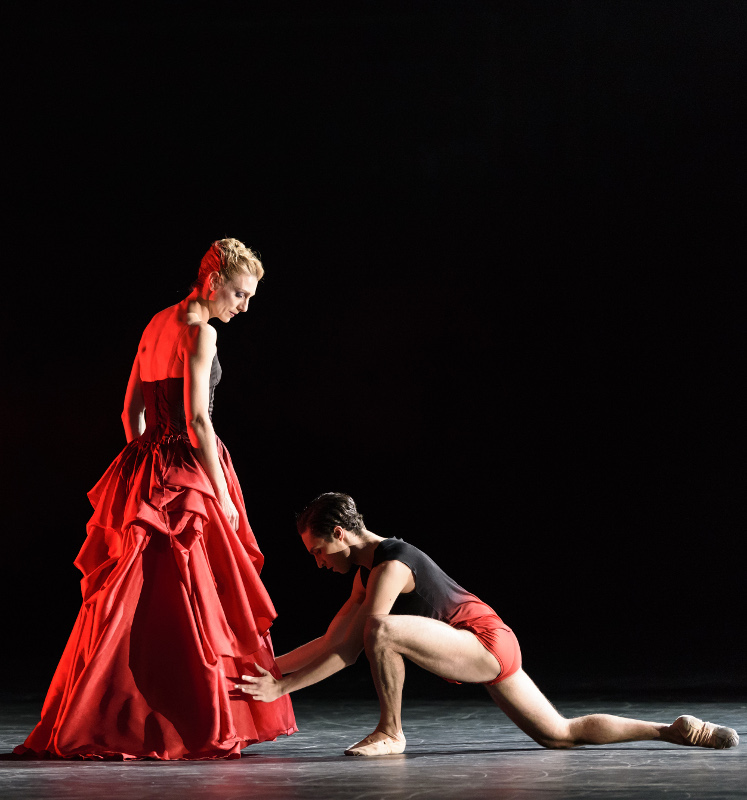 Symphonic Dances, Liam Scarlett, Royal Ballet
Symphonic Dances, Liam Scarlett, Royal Ballet
The youngest of Covent Garden's pet choreographers needed a hit after his dismal 2016 Frankenstein, and with this one-act work set to Rachmaninov he got it. Incarnadine costumes billowed against a cavernous black set and soon-to-retire principal Zenaida Yanowsky (pictured left with James Hay by Bill Cooper) stalked the stage like a postmodern goddess, both terrifying and tender. Scarlett has made some guff, but this is burned on my retinas in a good way: classy theatre with some very stylish choreography – bravo! Hanna Weibye
Mayerling, Royal Ballet
The national celebrations of Kenneth MacMillan, the great choreographer who died in 1992, took place in October, filling the Opera House stage with British ballet companies and one-act ballets. But the best proof of MacMillan's genius came in the Royal Ballet's April run of Mayerling, where Natalia Osipova's magnetic role debut as troubled Mary Vetsera (main picture) was only one of many standout performances from a first night cast boasting 10 principals. Profound, complex and nailbiting, that one performance was an irresistible argument not just for Mayerling as a piece, but for MacMillan's pathbreaking success in expanding the possibilities of narrative ballet. Hanna Weibye
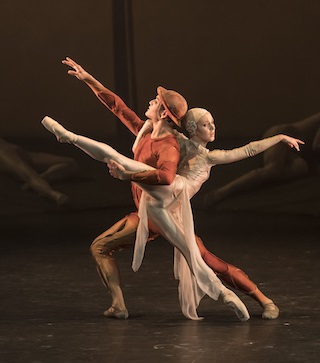 Kenneth MacMillan: A National Celebration
Kenneth MacMillan: A National Celebration
As a footnote to the above, the best thing to emerge from the MacMillan shindig was the spirit of sharing. Whatever the complexities of leasing and funding, it can’t be right that the work of a British choreographer as significant as this should be the preserve of a Royal Ballet that never sets foot in the regions. Inviting Scottish, BRB and Northern Ballet to take on one work each across three programmes did more than ring the changes. It enfranchised those companies and their home audiences. A standout was Northern Ballet’s Gloria (pictured right by Bill Cooper), an expressionist response to a generation’s blighted hopes in World War One. The dancers knew not to emote; they let the shapes and the steps take the emotional load and the result was a performance as poignant as any I have seen. Let’s hope the sharing doesn’t end there. Jenny Gilbert
To a simple ... rock'n'roll song, Michael Clark, Barbican
Is it nostalgia that fills theatres for Michael Clark? To judge by his fanbase these days, he means nothing to the under-40s. Yet this three-part evening, prompted in part by the death of David Bowie, should take its place among his best work. Gone are the bare-bummed gimmicks of his King’s Cross phase, the self-conciousness of Brit-art Clark. What remains is a fierce concentrate that might be worth labelling nu-classicism if anyone else looked likely to take it up. Hips are savagely turned out, arms held in aristocratic port-de-bras, bare feet pointed to extremes. And the discipline of Clark’s eight performers as they work in startling unison against a high-decibel barrage of Patti Smith or Bowie is as bracing as mouthwash. Thrilling. Jenny Gilbert
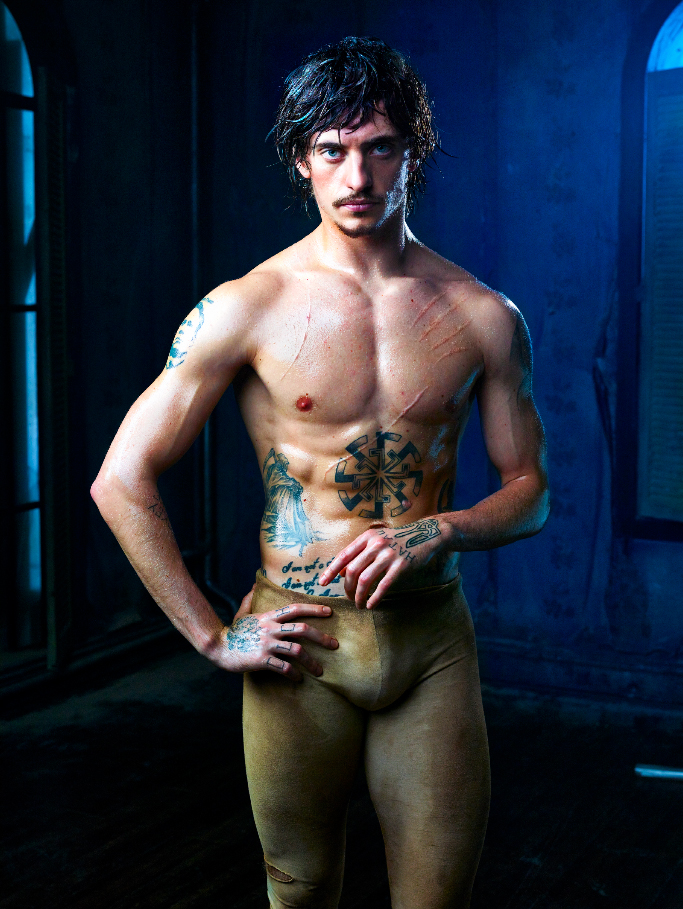 Dancer, dir. Steven Cantor
Dancer, dir. Steven Cantor
Given the rarity of feature films about dance or dancers, February’s cinema release of Steven Cantor’s documentary about the making and breaking of Ukrainian ballet prodigy Sergei Polunin (pictured right) was a must-see for anyone with half an interest in classical dance and/or child psychology. It’s not a bad film given the shakiness of much of the archive material, some it shot on phones belonging to ballet school chums, or Sergei’s mum. The director cleverly incorporates this into the film’s rock’n’roll aesthetic.
Traditionalists may hate it, but the use of thumping rock under the dance clips – whether Polunin onstage in Giselle or practising before a mirror – gives it all a grandstanding virility that plays beautifully to that theme. The film was shot over a long period – five years, with a 12-month break while Polunin was coaxed into completing it – and the result is a comprehensive, and affecting, account of the pressures that weigh on a young person blessed or cursed with outrageous talent. Jenny Gilbert
Explore topics
Share this article
The future of Arts Journalism
You can stop theartsdesk.com closing!
We urgently need financing to survive. Our fundraising drive has thus far raised £49,000 but we need to reach £100,000 or we will be forced to close. Please contribute here: https://gofund.me/c3f6033d
And if you can forward this information to anyone who might assist, we’d be grateful.

Subscribe to theartsdesk.com
Thank you for continuing to read our work on theartsdesk.com. For unlimited access to every article in its entirety, including our archive of more than 15,000 pieces, we're asking for £5 per month or £40 per year. We feel it's a very good deal, and hope you do too.
To take a subscription now simply click here.
And if you're looking for that extra gift for a friend or family member, why not treat them to a theartsdesk.com gift subscription?
more Dance
 'We are bowled over!' Thank you for your messages of love and support
Much-appreciated words of commendation from readers and the cultural community
'We are bowled over!' Thank you for your messages of love and support
Much-appreciated words of commendation from readers and the cultural community
 R:Evolution, English National Ballet, Sadler's Wells review - a vibrant survey of ballet in four acts
ENB set the bar high with this mixed bill, but they meet its challenges thrillingly
R:Evolution, English National Ballet, Sadler's Wells review - a vibrant survey of ballet in four acts
ENB set the bar high with this mixed bill, but they meet its challenges thrillingly
 Like Water for Chocolate, Royal Ballet review - splendid dancing and sets, but there's too much plot
Christopher Wheeldon's version looks great but is too muddling to connect with fully
Like Water for Chocolate, Royal Ballet review - splendid dancing and sets, but there's too much plot
Christopher Wheeldon's version looks great but is too muddling to connect with fully
 iD-Reloaded, Cirque Éloize, Marlowe Theatre, Canterbury review - attitude, energy and invention
A riotous blend of urban dance music, hip hop and contemporary circus
iD-Reloaded, Cirque Éloize, Marlowe Theatre, Canterbury review - attitude, energy and invention
A riotous blend of urban dance music, hip hop and contemporary circus
 How to be a Dancer in 72,000 Easy Lessons, Teaċ Daṁsa review - a riveting account of a life in dance
Michael Keegan-Dolan's unique hybrid of physical theatre and comic monologue
How to be a Dancer in 72,000 Easy Lessons, Teaċ Daṁsa review - a riveting account of a life in dance
Michael Keegan-Dolan's unique hybrid of physical theatre and comic monologue
 A Single Man, Linbury Theatre review - an anatomy of melancholy, with breaks in the clouds
Ed Watson and Jonathan Goddard are extraordinary in Jonathan Watkins' dance theatre adaptation of Isherwood's novel
A Single Man, Linbury Theatre review - an anatomy of melancholy, with breaks in the clouds
Ed Watson and Jonathan Goddard are extraordinary in Jonathan Watkins' dance theatre adaptation of Isherwood's novel
 Peaky Blinders: The Redemption of Thomas Shelby, Rambert, Sadler's Wells review - exciting dancing, if you can see it
Six TV series reduced to 100 minutes' dance time doesn't quite compute
Peaky Blinders: The Redemption of Thomas Shelby, Rambert, Sadler's Wells review - exciting dancing, if you can see it
Six TV series reduced to 100 minutes' dance time doesn't quite compute
 Giselle, National Ballet of Japan review - return of a classic, refreshed and impeccably danced
First visit by Miyako Yoshida's company leaves you wanting more
Giselle, National Ballet of Japan review - return of a classic, refreshed and impeccably danced
First visit by Miyako Yoshida's company leaves you wanting more
 Quadrophenia, Sadler's Wells review - missed opportunity to give new stage life to a Who classic
The brilliant cast need a tighter score and a stronger narrative
Quadrophenia, Sadler's Wells review - missed opportunity to give new stage life to a Who classic
The brilliant cast need a tighter score and a stronger narrative
 The Midnight Bell, Sadler's Wells review - a first reprise for one of Matthew Bourne's most compelling shows to date
The after-hours lives of the sad and lonely are drawn with compassion, originality and skill
The Midnight Bell, Sadler's Wells review - a first reprise for one of Matthew Bourne's most compelling shows to date
The after-hours lives of the sad and lonely are drawn with compassion, originality and skill
 Ballet to Broadway: Wheeldon Works, Royal Ballet review - the impressive range and reach of Christopher Wheeldon's craft
The title says it: as dancemaker, as creative magnet, the man clearly works his socks off
Ballet to Broadway: Wheeldon Works, Royal Ballet review - the impressive range and reach of Christopher Wheeldon's craft
The title says it: as dancemaker, as creative magnet, the man clearly works his socks off
 The Forsythe Programme, English National Ballet review - brains, beauty and bravura
Once again the veteran choreographer and maverick William Forsythe raises ENB's game
The Forsythe Programme, English National Ballet review - brains, beauty and bravura
Once again the veteran choreographer and maverick William Forsythe raises ENB's game

Add comment